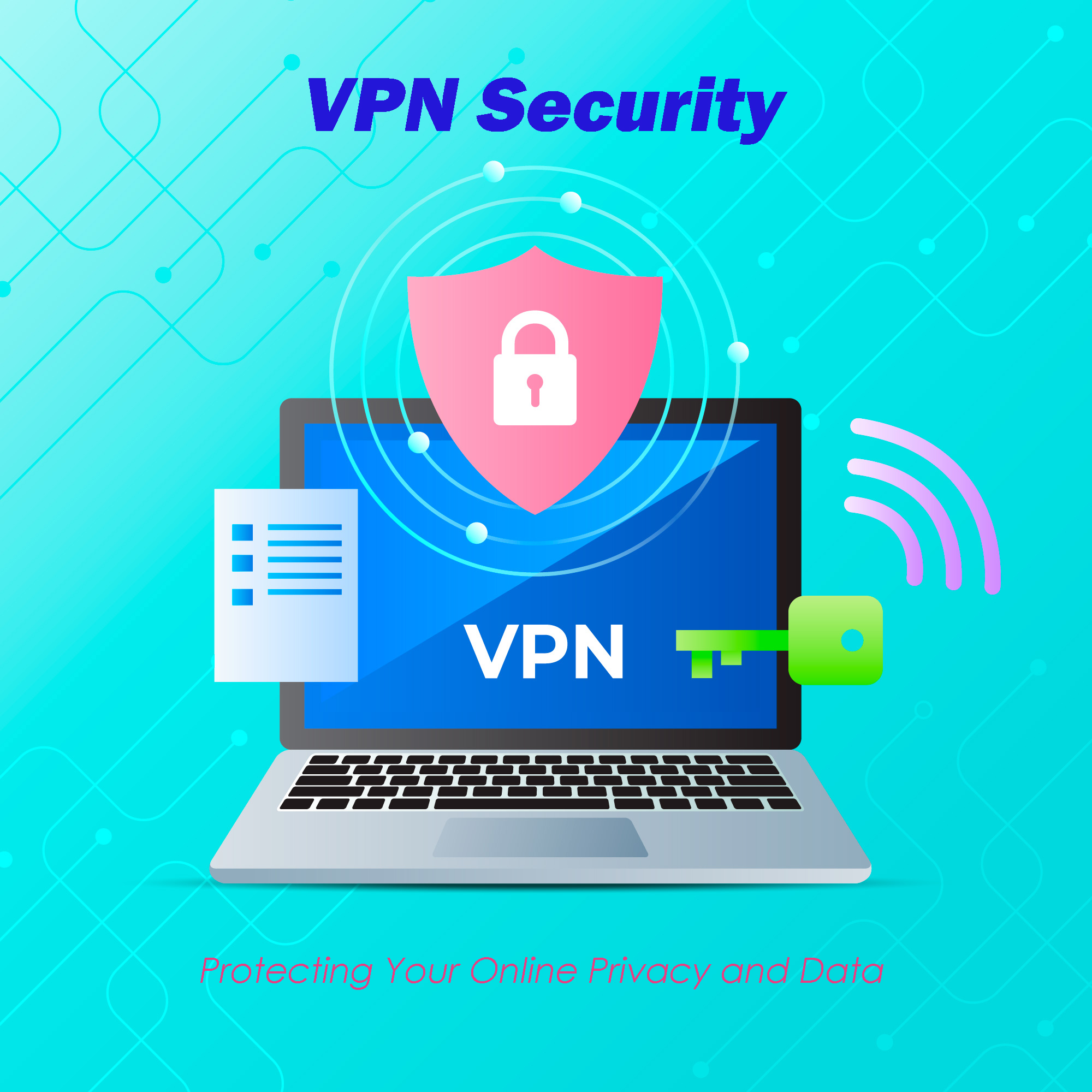VPN Security: Protecting Your Online Privacy and Data
In today’s digital age, the Internet has become an integral part of our daily lives. From online shopping and social media to telecommuting and online banking, we rely on the Internet for various aspects of our personal and professional activities. However, this increasing reliance on the Internet also poses certain risks, particularly with respect to online privacy and data security. Fortunately, virtual private networks (VPNs) have proven to be a powerful tool for securing our online presence and protecting sensitive data. In this article, we’ll dive into the world of VPN security and explore how they work and why they are so important for maintaining online privacy and data protection.
Understanding VPNs
A VPN (Virtual Private Network) is a technology that creates a secure and encrypted connection between your device and a remote server. This connection effectively shields your online activities from prying eyes and makes it difficult for hackers, advertisers, government agencies or other third parties to monitor your internet traffic.
How VPNs work
When you connect to the Internet without a VPN, your data is sent in unencrypted form to the websites and services you access. This data can potentially be intercepted or logged by your Internet service provider (ISP) or other entities. However, when you use a VPN, the following process takes place:
Encryption: when you connect to a VPN server, your data is encrypted. This means that your information is converted into a code that is very difficult to decipher without the decryption key.
Tunneling: The encrypted data is then sent through a secure tunnel to the VPN server. This tunnel ensures that your data remains confidential and cannot be intercepted by unauthorized parties.
IP masking: VPNs also hide your true IP address and replace it with the IP address of the VPN server you are connected to. This provides additional anonymity, as your online activities are associated with the VPN server’s location and not your own.
Remote access to the server: as soon as your data reaches the VPN server, it is decrypted and sent to the intended destination, be it a website, a file server or another online service. Responses from these services also pass through the VPN server before reaching your device.
VPN security protocols
VPNs use various security protocols to ensure the confidentiality and integrity of your data. The most commonly used protocols include:
OpenVPN: This open-source protocol is known for its strong security features and flexibility. It is widely used and compatible with various platforms.
L2TP/IPsec: Layer 2 Tunneling Protocol (L2TP) combined with Internet Protocol Security (IPsec) provides a high level of security. It is particularly useful for mobile devices.
PPTP: Point-to-Point Tunneling Protocol (PPTP) is easy to set up, but is considered less secure than other protocols due to some vulnerabilities.
SSTP: Secure Socket Tunneling Protocol (SSTP) was developed by Microsoft and is designed to provide a secure connection over SSL.
IKEv2/IPsec: Internet Key Exchange Version 2 (IKEv2) combined with IPsec is known for its stability and speed, making it suitable for mobile devices.
Why VPN security is important
Privacy protection: privacy is a fundamental right, and VPNs play a crucial role in preserving those rights. By encrypting your internet traffic and masking your IP address, VPNs prevent ISPs, advertisers, and other companies from tracking your online activities.
Bypass geo-restrictions: VPNs allow you to access websites and online services that may be geographically restricted. This can be especially useful for streaming content, accessing blocked websites, or using services that are only available in certain regions.
Securing public Wi-Fi: Public Wi-Fi networks are convenient, but often lack security. VPNs encrypt your data and make using public Wi-Fi secure without worrying about possible eavesdropping or hacking attempts.
Avoiding censorship: In countries with strict online censorship, VPNs can be a lifeline. They allow users to bypass government-imposed restrictions and access the open Internet.
Protecting sensitive data: If you handle sensitive data for work or personal reasons, a VPN is essential to protect it. This is especially important for remote workers who need to access corporate networks securely.
Preventing identity theft: VPNs provide an extra layer of protection against identity theft by hiding your personal information and keeping your online activities secret.
Choosing the right VPN.
Not all VPNs are created equal, and choosing the right one is crucial for effective online security. Below are some factors to consider when choosing a VPN:
Security features: Look for a VPN that uses strong encryption protocols, does not record logs, and offers features like a kill switch to ensure your data stays protected.
Server locations: the more server locations a VPN provider offers, the better your chances of accessing geographically restricted content.
Speed and performance: some VPNs can slow down your internet connection. Opt for a provider with fast and reliable servers to ensure a smooth online experience.
User-friendly interface: A user-friendly VPN client makes it easier to set up and use the service, especially for those who are new to VPN technology.
Device compatibility: make sure the VPN is compatible with all the devices you want to use, whether it’s a computer, smartphone or tablet.
Cost: VPN services vary in terms of pricing. While there are free VPNs, they often come with limitations and don’t offer the same level of security as paid options.
At a time when online privacy is increasingly at risk, VPNs serve as a powerful tool for protecting your personal information and maintaining your online anonymity. By encrypting your Internet traffic, masking your IP address, and providing a secure connection to remote servers, VPNs offer a comprehensive solution for protecting your online presence. Whether you’re concerned about your privacy, want to bypass geographical restrictions, or want to protect your data when using public Wi-Fi, a VPN is a valuable addition to your digital toolbox. Make an informed decision when choosing a VPN provider and take control of your online privacy and data security today.




